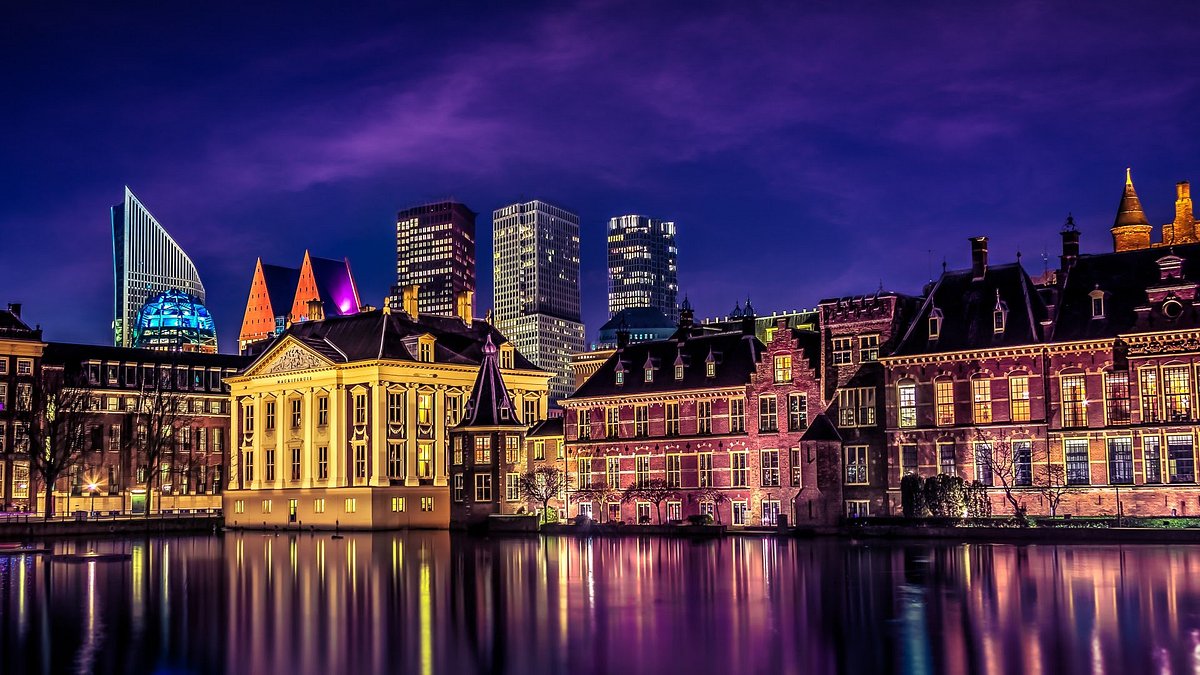Italy is a beautiful country with ancient ruins, amazing food, friendly people, and charming streets. But if you don’t know the local rules, it’s easy to get into trouble without meaning to. Italian laws and customs are different from other places. Sometimes, small things like eating in the wrong spot or sitting on a fountain can lead to a fine. I learned some of these lessons the hard way and others from talking to locals and reading signs. So if you’re planning a trip to Italy, here are the things you should avoid to stay out of trouble.
Sitting Where You’re Not Allowed
You might be tired from walking all day in Rome or Florence. A cool marble edge of a fountain looks like the perfect spot to rest. But be careful. In many Italian cities, it’s illegal to sit on historic fountains, monuments, and church steps.
In Rome, sitting on the Spanish Steps is not allowed anymore. Guards will blow a whistle and ask you to get up. If you ignore them, you could get a fine. The reason is to protect the old stone and keep the place clean. Tourists used to eat, drink, or spill things there, which damaged the steps.
Before you sit somewhere, look around. If others are sitting, it’s probably okay. But if the place looks too clean or historic, it’s better to find a bench instead.
Eating in the Wrong Place
Everyone loves Italian food. Pizza, gelato, paninis—they’re all delicious. But walking around and eating in certain areas can lead to a fine. Some popular tourist spots have strict rules about this.
For example, in Venice and Florence, you can’t sit on the ground or eat near famous buildings and bridges. In Rome, eating messy food like pasta or pizza in public near monuments is banned. The idea is to keep the areas clean and respectful.
If you’re hungry, step into a park or sit at a café. Don’t munch on your sandwich while standing near a church doorway. Even a scoop of melting gelato can get you a warning if you drip on ancient streets.
Touching or Taking from Monuments
This one may sound obvious, but some tourists still do it. Don’t touch statues or try to climb them. Don’t take stones or pieces from ruins. It might seem small to you, but these are protected cultural sites.
In Pompeii, for example, some visitors took small rocks as souvenirs. But later, many sent them back, saying they brought bad luck. Local officials were not happy and reminded everyone that taking from the ruins is theft.
Also, don’t scratch your name into ancient walls or trees in historic gardens. Not only is it disrespectful, but it can also bring serious legal trouble.
Swimming or Dipping in Public Fountains
It gets really hot in Italy during the summer. Jumping into a fountain might sound fun and refreshing. But it’s also illegal. Public fountains are for decoration and history, not for swimming or cooling off.
Tourists have been fined for putting their feet into the water or splashing around. Even taking a dramatic selfie while standing in a fountain can bring a fine. In Rome, the Trevi Fountain is strictly guarded. Every year, people are caught trying to jump in, and it always ends badly.
If you need to cool down, find a proper swimming pool or splash some water on your face at a public drinking fountain instead.
Wearing Swimwear Away from the Beach
Italian beach towns like Cinque Terre or Amalfi are famous for sun and sea. But once you leave the beach, cover up. Walking around town in only your bikini or swim shorts can lead to fines in some places.
In places like Sorrento or Capri, there are signs asking tourists to dress modestly when walking in town. Wearing beachwear in restaurants, shops, or even on the main street is considered rude.
Always carry a light shirt or dress to throw over your swimsuit when you leave the beach. It shows respect for the locals and helps you avoid trouble.
Making Too Much Noise at Night
Italy has a lively culture, and people love talking, singing, and enjoying life. But in residential areas, loud noise after certain hours is not welcome. Especially in small towns or villages, people expect peace and quiet after 11 PM.
If you rent an Airbnb, make sure you keep the noise down at night. Don’t play loud music or have a noisy group on the balcony. Neighbors might call the police or the owner.
Even in cities like Rome or Milan, being too loud in a hotel hallway or apartment building could bring complaints. Try to enjoy the nightlife in bars or public places and stay quiet when returning to your room.
Not Having a Valid Train Ticket
Many tourists think they can just hop on a train and pay later. That’s a big mistake in Italy. You need to buy your ticket before boarding and validate it at the machine before the train leaves.
The little green or yellow box at the station is for stamping your ticket. It shows the time and date. If you forget to stamp it, the train inspector may think you’re trying to travel for free. Even if you say you didn’t know, they often won’t forgive it. The fine can be around €50 or more.
If you’re using a digital ticket or app, make sure it’s active and ready to show. Don’t wait until the inspector comes to open it. They are very strict about this.
Not Following Road and Parking Rules
Driving in Italy can be tricky. The roads are narrow, signs are in Italian, and locals drive fast. But the real trouble starts with parking and ZTL zones.
ZTL means “Zona a Traffico Limitato.” These are areas in many cities where only locals or certain cars can enter. If you drive into one by mistake, even for a second, a camera will take a picture of your license plate. Weeks later, you might get a fine in the mail.
Also, never park where there are yellow lines (reserved) or where signs say no parking. Italian police are quick to tow cars or give tickets. Always check signs before leaving your car, even if it’s just for a few minutes.
Trying to Skip Lines or Disrespecting Queues
Italians don’t always form perfect lines, but they do respect turn order. If you’re at a museum, bakery, or bus stop, don’t push ahead or cut the queue. People will notice, and they won’t be happy.
At popular places like the Colosseum or Vatican Museums, people wait in long lines. If you try to sneak in or follow a tour group without a ticket, you’ll likely get caught. Security is tight, and they check tickets carefully.
Also, be patient in small shops. Wait for the person in front of you to finish. Don’t wave your money or shout your order over someone else. That’s considered very rude.
Feeding the Pigeons
In cities like Venice and Milan, feeding pigeons is not allowed. Years ago, people used to sell bird food in St. Mark’s Square. Tourists loved taking photos with birds on their arms. But now, feeding them is banned.
Too many pigeons caused damage to buildings and left messes everywhere. If you’re caught feeding them, you might get a fine. So even if a bird lands near you, resist the urge to toss it crumbs.
Instead, take a photo from a distance or enjoy the view without encouraging the birds to stay.
Using Drones Without a Permit
Taking drone videos of Italy’s beauty sounds amazing. But be careful. Many parts of Italy have strict drone rules. Flying near airports, cities, or crowded areas without permission is not allowed.
In places like Venice, Rome, and Florence, drone use is usually banned unless you have special approval. If you’re caught flying a drone illegally, police can take your drone and fine you heavily.
Even in rural areas, you need to check the rules. Always look up local drone laws before flying, and never fly over people or private property.
Disrespecting Churches and Sacred Places
Italy is full of churches and religious sites. They are open to visitors, but you need to dress and act with respect. Don’t wear shorts, crop tops, or sleeveless shirts inside. Many churches have signs reminding people to cover shoulders and knees.
Also, don’t talk loudly, run around, or take flash photos. These places are for quiet prayer and respect. Even if you’re not religious, it’s important to follow the rules.
If you want to visit the Vatican, make sure to dress properly. They won’t let you in if your clothes are too revealing.
Being Too Physical in Public
Italians are warm and friendly, but too much kissing, hugging, or touching in public can get strange looks. In places like Rome or Milan, a quick kiss or holding hands is fine. But in smaller towns or near churches, it’s better to keep things modest.
Lying down together in a park, being too flirty in a museum, or getting too close to strangers can make people uncomfortable. Show affection gently and know when to keep it private.
Taking Sand or Shells from Beaches
Italy has many beautiful beaches. But taking sand, rocks, or shells home is illegal in many places. In Sardinia, tourists have been fined hundreds of euros for filling a bottle with white sand.
Signs at beaches often explain the rules. But even if you don’t see a sign, it’s better to leave nature where it belongs. Taking these things harms the environment and can get you in legal trouble.
Trying to Haggle in Shops or Restaurants
In markets, a little bargaining might be okay. But in regular stores and restaurants, prices are fixed. If you try to argue or ask for big discounts, it can offend the staff.
Also, tipping is not expected like in the US, but it’s nice to leave a euro or two if service was good. Don’t fight over the bill or try to skip service charges. Just pay what’s asked and be polite.
Traveling in Italy is a dream for many people, but it’s important to respect the culture, follow the laws, and act like a good guest. These little mistakes can ruin your trip or leave a bad impression. So stay aware, stay polite, and enjoy every moment the Italian way.









